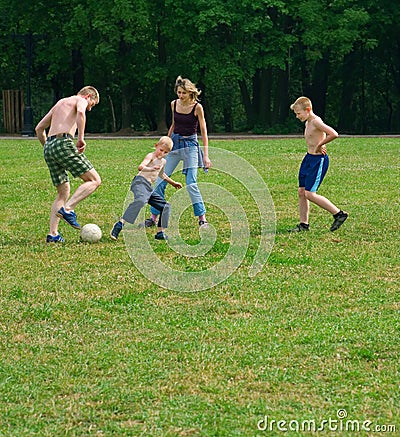
My wife and I like to introduce our two daughters to as many activities as possible. Sure, running is one of them, and it’s kind of hard for them not to notice that it seems as though Daddy is always heading out the door for a run. But we never tell them how running is the greatest sport, or how they’re wasting their time when they’re skating, dancing, boating, playing basketball or tennis, or doing any of the other activities that they’ve found that they enjoy.
What we want to do is get across the idea that fitness is a lifestyle. We want to show them that being active and healthy and feeling good while using your body on a regular basis should be the norm. Children are much more likely to develop good fitness habits for the rest of their lives if they see that fitness is important to you. That’s a much better message to send than presenting fitness as an occasional intrusion that you have to tend to out of obligation. In terms of running, this approach means that if your child expresses an interest in it, explore that interest together. Go for a run with your kid. Take him or her to your races, not so much to run, but to show the festive atmosphere that races have. Do what you can to expose your child to those elements of running that are going to have the most appeal to kids.
You might not think so, but one of the biggest appeals of running is going to be the chance to spend some quality time with you. Young kids, especially, will do almost anything to get adult attention. So if they want to run with you, indulge them. Running together can strengthen your relationship, because the child will see your runs as one-on one, undivided attention time. Let these runs unfold on the child’s terms. That might mean jumping through puddles, or stopping to look at animals, or heading home after just a few minutes. Let them set the pace and the course. Remember, it’s supposed to be fun for them, which means feeling good right then.


